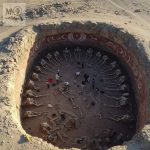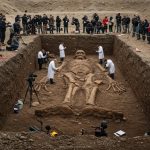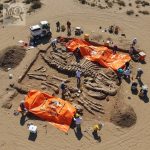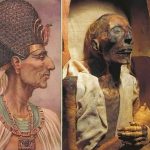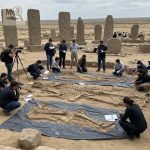Mysterious Find: 80 Bound Skeletons in Athens
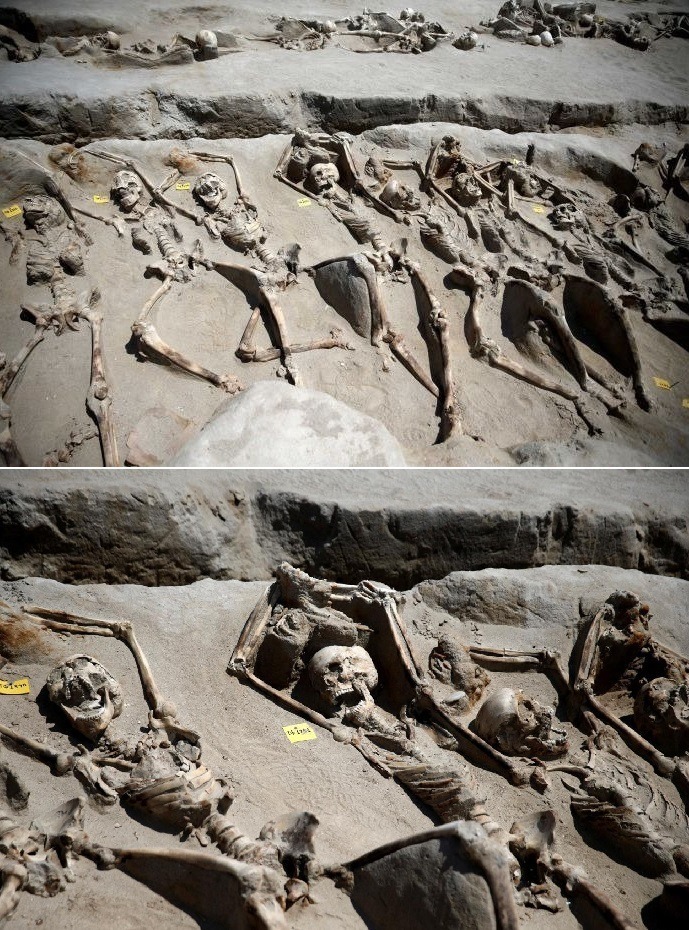
Archaeology often uncovers treasures of beauty and artistry, but sometimes it reveals the darker chapters of human history. One of the most chilling discoveries in recent decades comes from the Faliron Delta necropolis near Athens, where archaeologists unearthed a mass grave containing 80 skeletons. Each body was buried with its wrists shackled in iron chains, a haunting testament to violence and power struggles in ancient Greece.
A Discovery Beneath Modern Athens

The discovery occurred during construction for Greece’s new national opera house and library, when excavation teams stumbled upon the unusual burial site. The skeletons, buried beneath sandy soil more than 2,500 years ago, were arranged in orderly rows, suggesting that this was not a hasty battlefield burial but a deliberate, ritualized interment.
The presence of iron shackles on the wrists of nearly every skeleton makes the find particularly striking. Unlike ordinary graves, these individuals were clearly captives, executed and buried together in a single, grim event.
Who Were the Shackled Dead?
The identity of the 80 bound skeletons remains uncertain, but historians have proposed several compelling theories:
-
Rebels after a failed uprising: The men may have been political dissidents executed during one of Athens’ early power struggles.
-
Prisoners of war: Captured soldiers or rebels could have been executed en masse as a demonstration of dominance.
-
Victims of political purges: In a period when Athens was transitioning toward democracy, executions may have served as brutal warnings to rivals.
Whichever theory proves correct, the discovery provides direct evidence of the political violence that shaped early Athens.
A Window Into Ancient Greece
The Faliron Delta site is no ordinary cemetery. Used extensively between the 8th and 5th centuries BCE, it contains hundreds of burials that shed light on the social hierarchies and struggles of pre-classical Athens. The shackled skeletons stand out as a stark reminder that the road to Athenian democracy was not smooth but marked by bloodshed and power struggles.

Their burial with shackles intact suggests that their captors intended to memorialize—or warn others about—the consequences of rebellion. In this way, the site is as much a political statement as it is a burial ground.
Historical and Cultural Impact
The discovery of the 80 bound skeletons resonates far beyond archaeology. It speaks to universal themes of justice, power, and resistance, reminding us that democracy was forged not only in philosophical debate but also in violent conflict. The victims’ silent witness challenges us to reconsider how societies are built, and at what cost.
For modern Greece, the find is a poignant reminder that even its proudest achievements, such as democracy, were born out of turmoil and sacrifice.
Conclusion
The 80 bound skeletons of Athens remain one of the most mysterious archaeological discoveries of the 21st century. Whether rebels, prisoners, or victims of purges, their shackled remains provide a chilling glimpse into the darker side of ancient Athens. More than a mass grave, the site is a monument to struggle, oppression, and the enduring complexity of human history.

